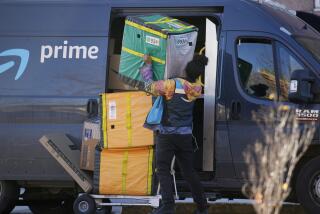That Wonderful Big Mac Attack
- Share via
McDonald’s Corp., which plans to spend $400 million this year to build or remodel about 1,400 restaurants, says that fully $100 million of that sum will be used to buy recycled products. McDonald’s promises that this big jump in its support for recycling--it now spends $60 million a year on recycled paper goods--will continue indefinitely.
Given a big enough market, recycled products are often cheaper than virgin materials; in time, then, McDonald’s profits ought to be boosted. That consideration in no way detracts from the social value of what the fast-food chain is doing.
Americans, facing rising energy costs to produce what eventually becomes their trash and rapidly running out of places to dispose of it, have a compelling need to move toward large-scale recycling. McDonald’s serves about 22 million customers a day, making it not just a major purveyor of food but a big generator of trash. Along with other large companies, it should take the lead to create markets that would encourage greater conversion of waste into reusable products. McDonald’s intends to give preference to materials using recycled plastic, among them ceiling and floor tiles, insulation, roofing, table tops, trash cans and playground equipment. Manufacturers and distributors of these and other recycled products are invited to contact McDonald’s.
Recycling is especially important for plastics, which now make up about 7% of U.S. solid waste by weight. That volume, the Environmental Protection Agency warns, will likely double in just 10 years. New technologies are making some plastics recycling feasible. Those technologies, combined with new markets of the kind McDonald’s responsibly intends to foster, are vital for dealing with the nation’s burgeoning solid-waste problem.
More to Read
Inside the business of entertainment
The Wide Shot brings you news, analysis and insights on everything from streaming wars to production — and what it all means for the future.
You may occasionally receive promotional content from the Los Angeles Times.










